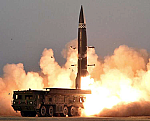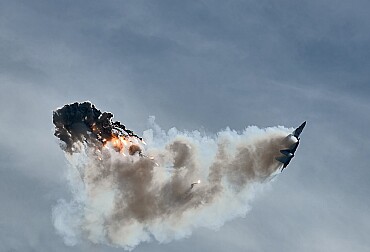Europe's collective efforts to fortify air defence amidst escalating tensions
In the midst of ongoing conflicts and escalating tensions in Europe, the imperative of robust air defence systems has become increasingly apparent. The protracted war in Ukraine has served as a stark reminder of the critical role air defence plays in safeguarding both military assets and civilian populations. Consequently, European nations are intensifying their efforts to bolster their air defence capabilities, recognizing the urgent need for collective action and investment in this vital domain.
The conflict in Ukraine, now spanning over two years, has provided invaluable insights into the nature of modern warfare and the strategic significance of air defence systems. As the intensity of hostilities escalates, the demand for effective air defence measures has surged. Ukraine's struggle to procure adequate ammunition for its air defence systems underscores the urgent need for robust defences against aerial threats.
In response to these challenges, Ukraine's allies have stepped up their support by supplying advanced air defence systems. Western-made systems, such as the IRIS-T from Germany and NASAMS from the United States, have been deployed to bolster Ukraine's capabilities. However, President Volodymyr Zelensky's call for further reinforcements highlights the persistent threat posed by Russian aggression.

Beyond supporting Ukraine, European nations are enhancing their own air defence capabilities to mitigate potential risks. Norway, for instance, has initiated procurement of additional NASAMS systems, while Italy and Germany are upgrading their air defence arsenals with state-of-the-art systems like the SAMP/T and Patriot missiles. Spain has also announced plans to modernize its air defence forces, signaling a broader trend of investment in this critical area.
Furthermore, the European Sky Shield Initiative (ESSI), proposed by Germany, has gained traction as a collaborative effort to establish a comprehensive air defence network across Europe. This initiative aims to procure a range of short-, medium-, and long-range air defence systems, including the IRIS-T, Patriot, and Arrow 3. With the support of multiple European nations, ESSI represents a strategic commitment to collective security and deterrence against potential threats.
Germany's recent approval of the Israeli Arrow 3 system marks a significant milestone in the implementation of ESSI. The integration of advanced air defence systems under this initiative underscores Europe's determination to strengthen its defensive capabilities in the face of evolving security challenges. Moreover, the interest expressed by additional countries, such as Greece, Turkey, and Poland, reflects the growing recognition of the importance of collaborative defence measures.
However, as Europe advances its air defence agenda, it must confront various challenges, including the need to develop a robust industrial base and ensure sufficient ammunition supplies. Building a resilient and multi-layered air defence network requires concerted efforts and long-term investment in both infrastructure and technology.
In conclusion, Europe's commitment to fortifying its air defence capabilities is a testament to the region's resolve to uphold security and stability in the face of mounting threats. By leveraging collective initiatives like ESSI and bolstering national defence systems, European nations are taking proactive steps to safeguard their interests and protect against potential adversaries. As the security landscape continues to evolve, the importance of robust air defence will remain paramount in ensuring the safety and resilience of the continent.








